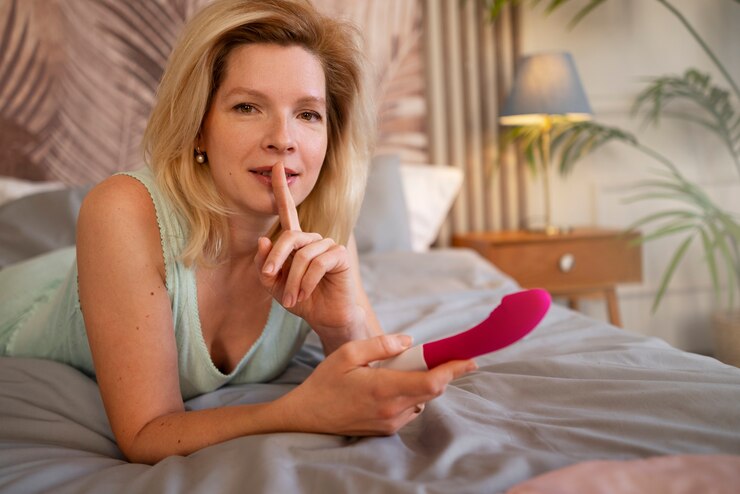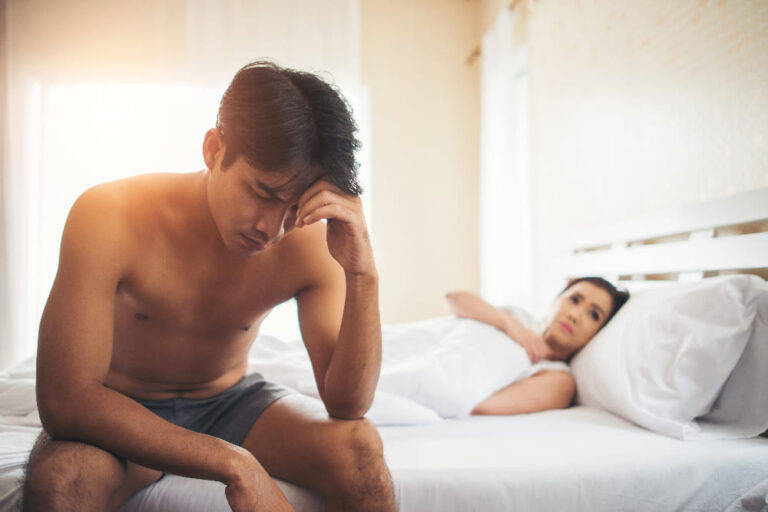Masturbation and Fertility: The Truth About How Solo Play Affects Your Reproductive Health

The Relationship Between Solo Play and Fertility
Scientific research has led to a growing interest in understanding the relationship between solo play and fertility. Solo play, also known as masturbation, is a common and natural activity that many individuals engage in for various reasons. However, concerns regarding its potential impact on fertility have led to misconceptions and uncertainties.
To date, several studies have examined the effects of solo play on reproductive health, particularly in relation to sperm count, quality, and motility in males. Some research suggests that frequent solo play may lead to a decrease in sperm count, while others have found no significant association. Additionally, the impact of solo play on female fertility and hormonal balance is also being explored. Understanding this complex relationship requires a comprehensive analysis of the available scientific evidence and a consideration of various factors influencing fertility.
Understanding the Impact of Solo Play on Reproductive Health
Solo play, also known as masturbation, is a natural and common behavior that many individuals engage in. When it comes to reproductive health, it is important to understand the impact that solo play can have. While there is limited research specifically addressing this topic, some studies suggest that solo play may have potential benefits for reproductive health.
One potential benefit is the release of endorphins during solo play, which can contribute to stress reduction and improve overall well-being. Additionally, solo play can help individuals become more familiar with their own bodies and their sexual preferences, which can be beneficial for both solo and partnered sexual experiences. However, it is important to note that individual experiences with solo play can vary, and what works for one person may not work for another.
It is worth mentioning that solo play has been a topic of debate when it comes to its impact on fertility. Some misconceptions suggest that frequent solo play can decrease fertility in both men and women. However, there is no scientific evidence to support this claim. In fact, studies have shown that solo play does not have a direct negative impact on sperm count or motility in men, nor does it have a direct negative impact on female reproductive health. Solo play is considered a normal and healthy sexual behavior that does not interfere with an individual’s ability to conceive. However, it is important to maintain a balanced approach to solo play and not let it interfere with the desire for partnered sexual experiences or relationships.
Debunking Misconceptions: Does Solo Play Decrease Fertility?

There is a common misconception that engaging in solo play, also known as masturbation, can decrease fertility. However, this notion is not supported by scientific evidence. Numerous studies have been conducted to examine the relationship between solo play and fertility, and the results consistently indicate that solo play does not have a negative impact on a person’s ability to conceive.
One study published in the Journal of Fertility and Sterility analyzed semen samples from men who engaged in regular solo play compared to those who did not. The researchers found no significant differences in sperm count, motility, or morphology between the two groups. Similarly, a separate study published in the journal Human Reproduction found no association between solo play frequency and sperm parameters. These findings suggest that solo play does not have a detrimental effect on male fertility.
The Potential Benefits of Solo Play for Reproductive Health
Solo play, also known as masturbation, has been a topic of fascination and debate when it comes to its potential benefits for reproductive health. While cultural and religious beliefs may influence individual perspectives, scientific research suggests that there are indeed potential advantages to solo play in the context of reproductive health.
One of the primary benefits of solo play is the potential to improve sexual function and satisfaction. Engaging in solo play allows individuals to explore their own bodies, understand their sexual preferences, and learn about what stimulates them the most. This self-exploration can enhance self-awareness and improve communication with sexual partners, leading to more fulfilling sexual experiences. Additionally, solo play is often associated with stress reduction and improved mood, which can further contribute to enhanced sexual well-being.
Scientific studies have also shown that solo play can have positive effects on prostate health in males. Frequent ejaculation through solo play has been linked to a reduced risk of prostate cancer. A study published in The Journal of the American Medical Association found that men who ejaculated more frequently had a lower risk of developing prostate cancer compared to those who engaged in sexual activity less frequently. While more research is needed to establish a definitive causal relationship, the potential protective effect of solo play on prostate health is intriguing.
Understanding the potential benefits of solo play for reproductive health can help individuals make informed decisions about their sexual well-being. However, it is important to note that moderation and personal comfort play key roles in maintaining a healthy balance. As with any topic related to sexual health, it is advisable to consult a healthcare provider for personalized advice and guidance. Building a comprehensive understanding of solo play and its potential impact on reproductive health can empower individuals to make choices that support their overall well-being.
Exploring the Connection Between Solo Play and Sperm Count

Solo play, also known as masturbation, is a natural and common sexual activity for many individuals. When it comes to male fertility, there has been ongoing speculation about the potential impact of solo play on sperm count. Sperm count refers to the number of sperm present in a semen sample and is an important factor in male fertility.
Several studies have explored the connection between solo play and sperm count, with varying results. Some studies suggest that frequent solo play may lead to a decrease in sperm count, while others have found no significant correlation. It’s important to note that these studies often have limitations, such as small sample sizes or reliance on self-reporting.
How Solo Play Can Affect Sperm Quality and Motility
When it comes to sperm quality and motility, solo play can have both positive and negative effects. On one hand, engaging in solo play can be beneficial for sperm quality. Research suggests that regular ejaculation, whether through solo play or intercourse, helps to remove older sperm from the body, consequently improving the overall quality of the remaining sperm. Additionally, solo play can increase blood flow to the genitals, promoting healthier sperm production.
However, it’s important to note that excessive or compulsive solo play may have a negative impact on sperm quality and motility. Frequent masturbation without allowing sufficient recovery time can lead to decreased sperm count, reduced sperm motility, and even DNA damage in the sperm cells. It is recommended to strike a balance between engaging in solo play and maintaining a healthy sperm count.
Here’s a concise data table on how solo play can affect sperm quality and motility:
| Solo Play and Sperm Quality/Motility | Key Concepts | Credible Source |
|---|---|---|
| Moderation and Sperm Quality | – Key Concept: Moderate solo play is unlikely to negatively impact sperm quality or fertility. Frequent ejaculation doesn’t significantly affect overall reproductive health. | American Urological Association |
| Abstinence and Sperm Health | – Key Concept: Balanced ejaculation patterns, whether solo or with a partner, contribute to healthier sperm. Extended abstinence may not be necessary for optimal sperm quality. | Mayo Clinic |
| Temperature and Sperm Motility | – Key Concept: Prolonged exposure to high temperatures during solo play may temporarily affect sperm motility, but the impact is usually reversible once the body returns to normal temperature. | Fertility and Sterility |
| Psychological Factors | – Key Concept: Stress and performance anxiety during solo play can impact sexual response, but addressing stressors positively contributes to overall sexual health. | Sexual Medicine Reviews |
| Lifestyle and Reproductive Health | – Key Concept: Adopting a healthy lifestyle, including a balanced diet and regular exercise, supports optimal sperm production and quality. | Cleveland Clinic |
Examining the Influence of Solo Play on Female Fertility
Female fertility is a complex and multifaceted topic that is influenced by numerous factors including hormonal balance, reproductive physiology, and overall health. One factor that has gained attention in recent years is the influence of solo play on female fertility. Solo play, or self-stimulation of the genitals for sexual pleasure, is a common practice for both males and females. However, its potential impact on female fertility is still a subject of debate and research.
There is limited scientific evidence to suggest a direct link between solo play and female fertility. Some studies have proposed that regular solo play may have a positive effect on female fertility by increasing blood flow to the reproductive organs and promoting overall sexual health. Additionally, solo play can help women become more familiar with their bodies and sexual preferences, which can enhance sexual experiences and potentially increase the likelihood of conception. However, further research is needed to fully understand the potential effects of solo play on female fertility, and it is advised to consult a healthcare provider for personalized information and guidance.
The Role of Hormones in Solo Play and Fertility
Hormones play a crucial role in the intricate relationship between solo play and fertility. Various hormones are involved in the reproductive process and can be influenced by solo play activities. One important hormone in this context is testosterone. Testosterone is primarily produced in the testes and plays a significant role in male reproductive function. Research suggests that solo play can lead to a temporary increase in testosterone levels within a certain timeframe after the activity. However, it is essential to note that the impact of solo play on testosterone levels may vary among individuals and may not have a significant long-term effect on fertility.
In addition to testosterone, another hormone that can be influenced by solo play is prolactin. Prolactin is primarily associated with breastfeeding and is involved in the regulation of reproductive function in both males and females. It has been found that solo play can lead to a temporary increase in prolactin levels, which may affect fertility to some extent. However, it is important to note that these changes in hormone levels are usually transient and return to baseline levels relatively quickly. The complex interplay between hormones and solo play requires further research to fully understand the impact on fertility.
Does Solo Play Have any Long-Term Effects on Fertility?
Does Solo Play Have any Long-Term Effects on Fertility?
Understanding the potential long-term effects of solo play on fertility is a topic that has garnered significant interest and generated various speculations. However, it is important to approach this topic with scientific rigor and consider the available evidence without bias.
Despite the prevalence of this form of sexual activity, research specifically examining its long-term impact on fertility is limited. While some studies suggest a potential link between frequent solo play and a decrease in sperm count or quality, more research is needed to draw conclusive evidence. It is worth noting that the existing studies often suffer from limitations such as small sample sizes and inconsistent methodologies, thereby making it difficult to establish a definitive causal relationship. Additionally, factors such as age, overall health, lifestyle, and genetic predispositions can influence fertility outcomes, making it challenging to isolate the sole impact of solo play.
Nevertheless, individuals concerned about their reproductive health may benefit from adopting certain lifestyle choices that are known to promote optimal fertility. Engaging in a balanced diet, maintaining a healthy weight, avoiding smoking and excessive alcohol consumption, managing stress levels, and practicing safe sexual behaviors are all crucial aspects to consider. It is, however, advisable to consult a healthcare provider for personalized advice and guidance based on individual circumstances. By understanding the complex interplay between solo play and fertility, individuals can make informed decisions regarding their reproductive health.
Considering the Psychological Impact of Solo Play on Reproductive Health
Solo play, also known as masturbation, is a topic that has long been associated with various psychological effects. When it comes to its impact on reproductive health, the psychological aspect cannot be ignored. Engaging in solo play can have both positive and negative effects on an individual’s psychological well-being, and understanding these implications is crucial.
On one hand, solo play can contribute to a positive psychological experience. It can serve as a form of stress relief, helping to relax the mind and body. The release of endorphins during solo play provides a sense of pleasure and can contribute to a positive mood. Additionally, solo play can aid in understanding one’s own desires and preferences, leading to a healthier and more fulfilling sexual experience. These psychological benefits can indirectly impact reproductive health by promoting a positive mindset and overall well-being, which is vital for fertility.
However, it is important to note that excessive or compulsive solo play may have negative psychological ramifications. For individuals who engage in solo play to an excessive degree, it can become an unhealthy coping mechanism or addiction. This may lead to feelings of guilt, shame, or low self-esteem, which can impact overall mental health. It is important to strike a balance and ensure that solo play remains a healthy and enjoyable part of one’s sexual experience.
Recommendations for Maintaining a Healthy Balance with Solo Play and Fertility
To maintain a healthy balance with solo play and fertility, it is important to prioritize overall reproductive health. This includes adopting a healthy lifestyle, ensuring adequate nutrition, and managing stress levels. Regular exercise, balanced meals, and sufficient sleep are essential for optimizing reproductive function.
In addition, it is crucial to engage in safe practices during solo play to reduce the risk of injury or infection. This includes using appropriate lubrication, cleaning sex toys thoroughly, and practicing good hygiene. It is also advisable to maintain open communication with sexual partners, as well as regularly getting tested for sexually transmitted infections. Taking these measures can help promote a healthy reproductive system and maintain fertility.
Seeking Professional Advice: When to Consult a Healthcare Provider about Solo Play and Fertility
Solo play is a natural and healthy aspect of human sexuality, and for most individuals, it does not pose any significant risks to fertility or reproductive health. However, there are certain situations where seeking professional advice from a healthcare provider may be beneficial. If you are experiencing difficulties conceiving despite regular, unprotected sexual intercourse, it may be worth consulting a healthcare provider. They can help assess any underlying factors that may be affecting your fertility, such as hormonal imbalances, structural abnormalities, or other medical conditions.
Additionally, if you have been actively trying to conceive for an extended period of time without success, it may be worthwhile to seek professional guidance. A healthcare provider can conduct a thorough assessment of both you and your partner’s reproductive health, including evaluating sperm quality and motility, ovarian function, and overall hormonal balance. They can also provide personalized recommendations based on your specific circumstances, such as lifestyle modifications, dietary changes, or possible fertility treatments that can optimize your chances of conception. Seeking timely professional advice can help address any concerns and provide necessary support on your fertility journey, promoting the overall well-being of you and your partner.
What is solo play?
Solo play refers to engaging in sexual activities or self-stimulation without a partner.
Can solo play affect fertility?
Solo play does not directly impact fertility. However, certain factors related to solo play, such as sperm count and sperm quality, may have an indirect influence on fertility.
Does solo play decrease fertility?
No, solo play does not decrease fertility. There is no scientific evidence to support this misconception.
Are there any benefits of solo play for reproductive health?
Yes, solo play can have potential benefits for reproductive health. It can help relieve stress, improve sexual function, and increase blood flow to the pelvic area.
How does solo play affect sperm count?
Solo play does not significantly impact sperm count. Sperm count is primarily influenced by factors such as genetics, overall health, and lifestyle choices.
Can solo play affect sperm quality and motility?
Solo play may have a temporary effect on sperm quality and motility, but it is not a long-term concern. Sperm quality and motility are influenced by various factors, including overall health and lifestyle choices.
Is there a connection between solo play and female fertility?
Solo play does not directly affect female fertility. Female fertility is dependent on factors such as ovulation, hormonal balance, and reproductive health.
What role do hormones play in solo play and fertility?
Hormones can play a role in both solo play and fertility. The release of hormones during sexual activity can have an impact on reproductive health, but solo play itself does not significantly influence hormonal balance.
Does solo play have any long-term effects on fertility?
No, solo play does not have any long-term effects on fertility. It is a normal and healthy part of sexual expression.
Should I be concerned about the psychological impact of solo play on reproductive health?
Solo play is a normal and healthy sexual activity, and it generally does not have a negative psychological impact on reproductive health. However, if you have concerns or experience distress related to sexual activities, it is recommended to consult a healthcare provider.
When should I consult a healthcare provider about solo play and fertility?
If you have specific concerns about your fertility, reproductive health, or sexual function, it is advisable to consult a healthcare provider. They can provide personalized advice and address any questions or concerns you may have.






